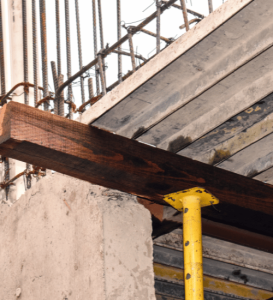To start a construction business, securing the right licenses and permits is crucial. Licensing requirements vary by state, so knowing which licenses apply to your area and the specific services you’ll offer is essential. Here’s a breakdown of the primary licenses and requirements that many states and regions demand to ensure compliance, safety, and trustworthiness in the construction industry.
1. General Contractor License
Most states require a general contractor’s license for anyone offering construction services on commercial or residential projects. General contractor licenses often require applicants to:
- Pass an exam that covers topics like construction laws, project management, safety protocols, and building codes.
- Show proof of experience in the construction industry. Many states require a certain number of years working under a licensed contractor.
- Submit proof of insurance and bonding, such as general liability insurance and sometimes workers’ compensation coverage.
Broussard Home Services has a general construction contractor’s license with the Washington Department of Labor and Industries.
2. Specialty Trade License
For contractors offering specialized services—such as electrical work, plumbing, HVAC, or roofing—additional licenses might be necessary. These specialty trade licenses require specific knowledge and skills, ensuring that tradespeople meet industry standards. Requirements typically include:
- Passing trade-specific exams.
- Documenting relevant work experience.
- Meeting insurance and bonding requirements specific to each trade.
3. Business License
Regardless of location, construction businesses need a general business license to operate legally. This license authorizes your company to conduct business within a certain city or county and may involve:
- Registering with the Secretary of State’s office.
- Paying local business taxes.
- Renewing the license annually.
Obtaining a business license is usually straightforward but is a crucial step for any legitimate business.
4. Employer Identification Number (EIN)
An EIN from the IRS is essential for tax purposes, especially if you plan to hire employees. The EIN acts as your business’s federal tax ID and is necessary for filing taxes, setting up payroll, and establishing business credit.
5. State Tax Registration
Many states require businesses to register with the state’s Department of Revenue for tax purposes, particularly if you sell taxable goods or services. Depending on the type of construction work, you may need to collect and remit sales tax or use tax. This registration ensures that your business is compliant with state tax laws.
6. Bonding Requirements
Many states require contractors to be bonded, meaning they must obtain a surety bond, which provides a form of financial security. A bond ensures that if your business fails to complete a project or adhere to contractual obligations, clients are financially protected. Bonding requirements vary but are often mandatory for general contractors and specialty trades alike.
7. Permits for Construction Projects
While permits aren’t the same as licenses, they’re required for specific construction projects. Building permits ensure that projects comply with local building codes and zoning laws. They are project-specific, so your business must be prepared to obtain the appropriate permits for each job. Permit requirements often depend on factors such as:
- Project type (e.g., residential, commercial, structural work).
- Nature of work (e.g., new construction, remodeling, demolition).
- Safety and environmental considerations.
8. OSHA Certification
Safety is paramount in the construction industry, and compliance with OSHA (Occupational Safety and Health Administration) standards is essential. Although OSHA certification isn’t a “license” per se, many states and clients expect construction companies to have safety training certifications. OSHA certification ensures that your employees understand workplace safety protocols and helps protect your business from fines or liability.
9. Local Regulations and Compliance
Local laws may impose additional requirements. For instance, cities and counties may have unique licensing requirements based on zoning, environmental standards, and project scope. Checking with local government offices to understand any specific requirements ensures that you meet all legal obligations.
10. Continuing Education and License Renewal
Many states require contractors to renew their licenses periodically. This may involve continuing education to stay up-to-date on industry changes, building codes, and safety protocols. Fulfilling these requirements ensures that your business remains compliant and up-to-date with best practices.
—
Starting a construction business is rewarding, but it comes with significant legal and regulatory responsibilities. Ensuring that you obtain the right licenses and follow local, state, and federal regulations is key to building a trustworthy, compliant business. By meeting these licensing and certification requirements, you’ll not only protect your business from legal issues but also gain the trust of clients who know they’re hiring a qualified, reliable professional.





